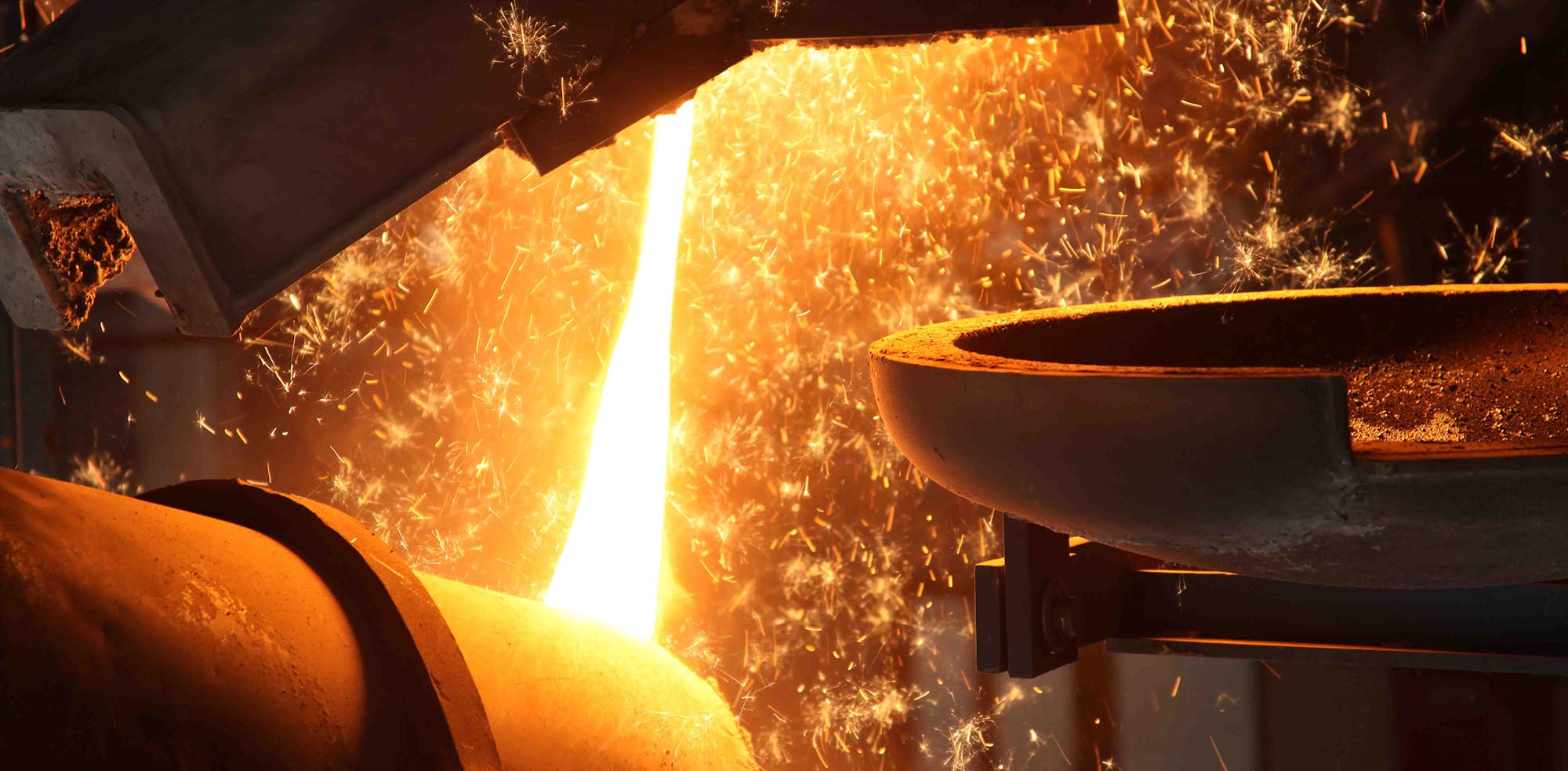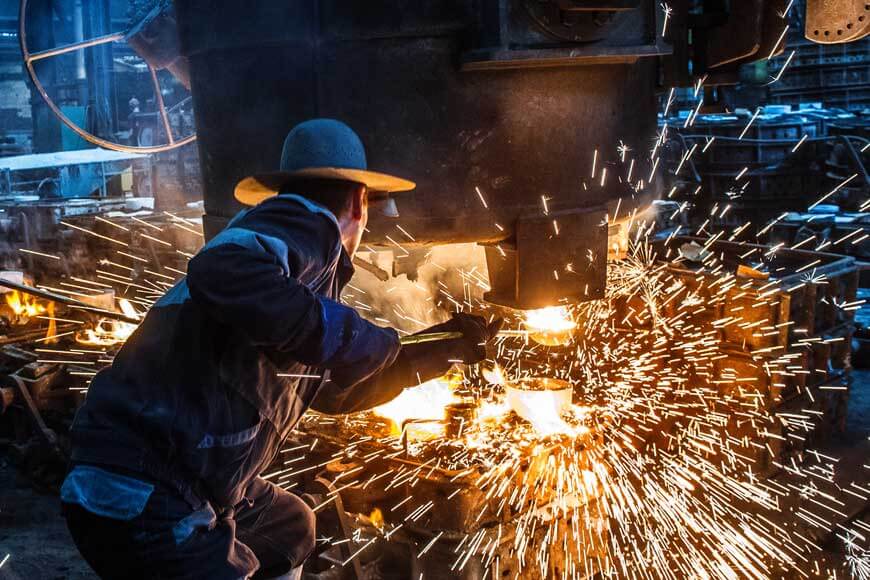What to expect when partnering with a full-service Aluminum Foundry
Discover the Diverse Solutions Given by Metal Foundries in Todays Sector
Steel factories play an important role in modern production by supplying a range of solutions tailored to meet commercial needs. They use techniques like sand spreading and accuracy machining to create intricate elements. Customized alloy development additionally enhances product performance. However, quality assurance and sustainability are increasingly becoming prime focus in the market. Understanding these varied services exposes the substantial impact foundries carry production performance and environmental duty. What else may be affecting their development?
Steel Casting Techniques: An Overview
Steel casting methods embody a blend of virtuosity and engineering, transforming molten metal right into precise forms and forms. These techniques have actually progressed over centuries, adapting to technical improvements and the diverse needs of different markets. Amongst one of the most typical techniques are sand casting, which utilizes sand molds; financial investment casting, known for its complex layouts; and die casting, which utilizes high stress for fast manufacturing.
Each strategy provides special benefits, such as cost effectiveness, accuracy, and the capacity to collaborate with different metal types. Sand spreading is particularly preferred for its flexibility and simplicity of usage, whereas financial investment spreading masters producing in-depth parts. Pass away spreading, on the various other hand, is optimal for high-volume manufacturing, making certain harmony and rapid turnaround. Collectively, these techniques play a vital function in creating elements for vehicle, aerospace, and equipment fields, showcasing the complex partnership between design and functionality in metalworking.

Accuracy Machining Provider
Accuracy machining solutions supply high precision and uniformity in the manufacture of complex parts throughout numerous sectors - Metal Foundry. These services are essential for creating parts that require intricate layouts and limited tolerances, guaranteeing that they meet rigorous top quality criteria. Advanced machining strategies, including CNC milling, transforming, and grinding, make it possible for steel factories to create parts with exceptional information and surface
Utilizing modern equipment, precision machining can deal with a wide array of products, consisting of plastics, composites, and steels. This flexibility allows sectors such as aerospace, vehicle, and medical to take advantage of tailored remedies that improve product efficiency and dependability.

Custom Alloy Advancement
Personalized alloy development plays a crucial function in satisfying the specific requirements of different commercial applications. Metal factories take part in creating tailored alloys that accommodate unique efficiency criteria, such as stamina, rust resistance, and thermal conductivity. By making use of advanced metallurgical techniques and simulations, these factories can create alloys that enhance the general performance of items throughout varied fields, consisting of aerospace, auto, and electronic devices.
Cooperation in between shops and customers is significant in this process. Metallurgists and designers collaborate to identify desired properties, enabling exact changes in make-up and handling approaches. This bespoke strategy not only maximizes product performance but additionally adds to set you back performance by decreasing waste and maximizing source use.
In the competitive landscape of modern production, personalized alloy growth is a crucial solution that equips services to introduce and keep an affordable side while addressing specific functional obstacles efficiently.
Quality Assurance and Testing Procedures
Making certain the greatest requirements of quality control and screening treatments is necessary for metal foundries to supply trusted products. These procedures commonly include a series of techniques created to evaluate the integrity and efficiency of metal spreadings. Factories use various screening techniques, including aesthetic inspections, mechanical property examinations, and non-destructive screening techniques such as ultrasonic and radiographic evaluations.
Material make-up is rigorously examined using spectrometric techniques to confirm adherence to defined alloy standards. Furthermore, thermal analysis may be conducted to keep track of solidification patterns and forecast mechanical buildings.
Documentation of each screening phase is vital, as it offers traceability and guarantee that the items fulfill sector regulations and customer assumptions. By implementing strict high quality control procedures, steel foundries not only improve item reliability however likewise foster count on with customers, keeping an one-upmanship in the market.
Sustainability Practices in Steel Foundries
As sectors increasingly prioritize environmental obligation, steel shops are embracing sustainability methods that decrease their ecological footprint. Numerous factories are carrying out closed-loop systems to reuse products, lowering waste and conserving resources. This approach not only lowers the need for basic materials but also lowers energy usage during production.
Additionally, some factories are spending in energy-efficient modern technologies, such as electrical heaters and progressed cooling down systems, which substantially reduce greenhouse gas exhausts. Using green casting materials and ingredients even more boosts sustainability by decreasing unsafe environmental impacts.
Water preservation is an additional important focus, with Aluminum Casting foundries employing recirculation systems to restrict water use. In addition, waste management strategies, consisting of the recycling of sand and metal scrap, are becoming standard technique. By integrating these sustainability actions, metal shops are positioning themselves as responsible gamers in the production industry, aligning with worldwide efforts to advertise an extra lasting industrial landscape.
Often Asked Inquiries
What Industries Frequently Usage Metal Factory Providers?
Various markets make use of metal foundry solutions, including auto, building, aerospace, and power markets. These industries count on shops for personalized steel components, casting options, and high-grade products vital for their production processes and item growth.
How Can I Pick the Right Shop for My Job?
To choose the best factory, one need to assess factors such as expertise, credibility, innovation, high quality guarantee procedures, distribution timelines, and customer support. Performing comprehensive research study and looking for referrals can further assist the decision-making procedure.
What Is the Ordinary Preparation for Casting Orders?
The typical preparation for casting orders commonly ranges from four to twelve weeks. Factors influencing this timeline include order complexity, foundry capability, and material accessibility, which can vary significantly among different factories.
Are Metal Factories With The Ability Of Producing Small Batch Runs?

What Safety Steps Are Implemented in Metal Factories?
Metal foundries implement various safety and security actions, consisting of personal protective tools, air flow systems, normal training, emergency reaction protocols, and rigorous adherence to safety and security laws to decrease threats connected with molten steel handling and office mishaps.
Metal shops play a crucial role in modern production by supplying a range of solutions customized to meet commercial demands. Steel factories engage in developing tailored alloys that provide to unique performance requirements, such as strength, deterioration resistance, and thermal conductivity. Ensuring the greatest standards of high quality control and screening treatments is essential for metal shops to provide dependable items. As industries significantly prioritize ecological responsibility, metal foundries are taking on sustainability practices that lessen their environmental impact. Numerous sectors make use of metal foundry services, including vehicle, power, aerospace, and construction industries.